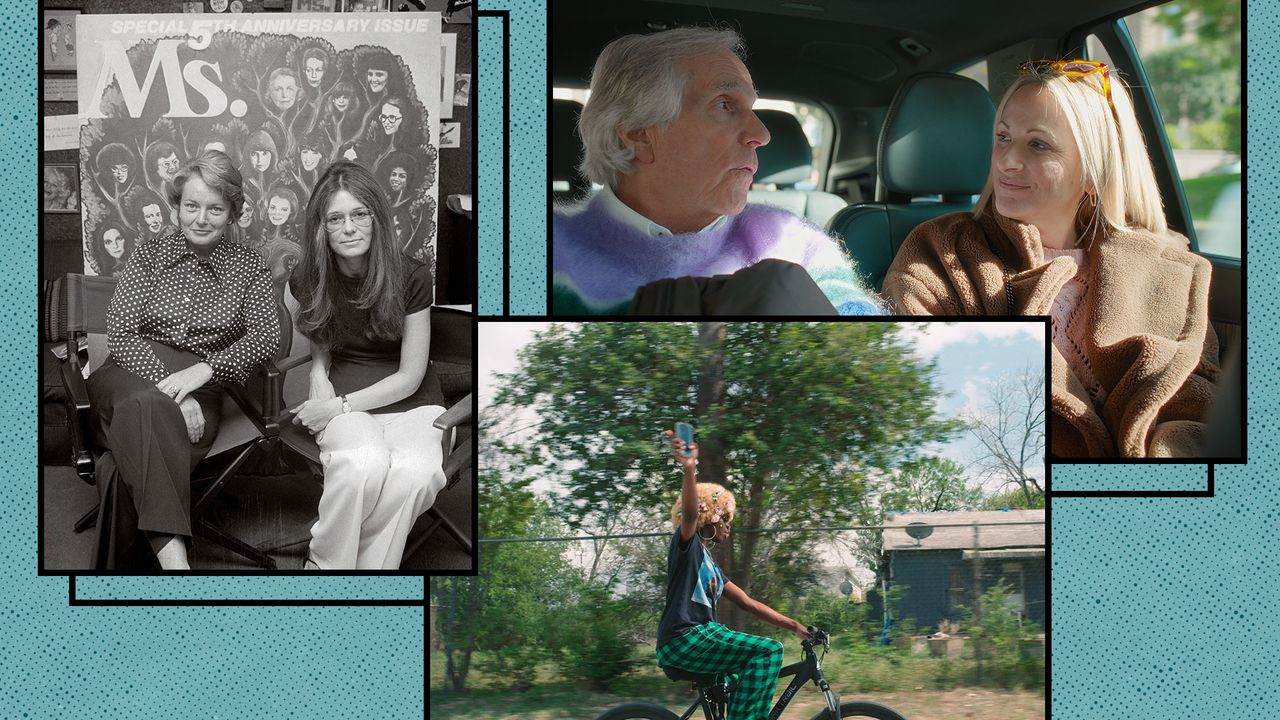Since the pandemic, film festivals have struggled in a landscape where fewer films receive theatrical distribution and streamers have scaled back the
Since the pandemic, film festivals have struggled in a landscape where fewer films receive theatrical distribution and streamers have scaled back their spending on acquisitions. In 2021, Tribeca chose to move its festival from April to June—helping distance the event from both Sundance, where so many independent films premiere, and Cannes, the industry’s preeminent auteur-driven festival.
This year, Tribeca differentiates itself by offering one of the most hearty documentary slates of any festival. With 59 feature documentaries premiering at the festival, including six HBO documentary premieres alone, Tribeca is proving to be a critical home for the genre. The timing feels particularly significant given A24’s recent announcement that it would be closing its documentary division. “The documentary community is so heavily represented in New York,” says festival director and SVP of programming Cara Cusumano. “It helps to be the hometown festival for a lot of these great filmmakers.” The festival received over 13,000 submissions this year, with attendance estimated at around 150,000, making it “the largest film festival in North America,” according to Cusumano.
Many of the docs premiering at the festival center on stories of identity and resilience. Just Kids, a documentary about the bans on gender-affirming care for children in states such as South Carolina and Texas, follows three families with trans children struggling to live their original lives in a hyper-political climate, while the government issues increasingly restrictive measures for their healthcare. “These kids are being used as political pawns,” says director Gianna Toboni. “I wanted to remind people from the very beginning that these are just kids. These kids deserve to have a childhood and deserve their innocence for as long as any other kid. And that’s not what’s happening.”
The children in the documentary are notably apolitical—something Toboni intentionally sought out when choosing her subjects. “None of these characters are activists. None of them are coastal elites with an agenda,” she says. “These are just real Americans trying to live their lives.” The documentary is seeking distribution, which could prove challenging given the current administration’s polarizing stance on this issue.
Feminist icons get a focus at this year’s festival, with documentaries centered on Gloria Steinem, Barbara Walters, and Allyson Felix. HBO’s Dear Ms.: A Revolution in Print, which will air this summer, chronicles the creation of Steinem’s Ms. magazine, launched in 1972. The documentary takes a challenging look at the topics the magazine covered, from abortion to pornography, and questions how the publication dealt with race in the feminist movement. It interviews almost all the former editors of Ms., who are candid about what they got right and wrong. After watching the doc, Steinem “learned that the influence of our small group at Ms. magazine would be far greater than we knew at the time,” she says.
Tell Me Everything chronicles the career of Barbara Walters. From the moment she started at NBC News at age 24, Walters was a force to be reckoned with. The documentary covers considerable ground in an hour and a half and even manages to have Walters narrate it posthumously by splicing together audio from ancient interviews. “She is this feminist icon,” says director Jackie Jesko. “But at the same time, she’s not Gloria Steinem, right? She says it herself: She wasn’t doing this for all women. I appreciate that honesty. She wasn’t doing it for all women, but that doesn’t negate the fact that she did shatter every possible glass ceiling.” The documentary illustrates just how challenging Walters fought to be taken seriously, despite being wildly successful and tenacious. The film premieres on Hulu on June 23.
Emmy-winning duo Perri Peltz and Matthew O’Neill are coming to the festival with their documentary She Runs The World, centered on the most decorated track and field athlete of all time, Allyson Felix. Felix made headlines when she revealed that Nike was trying to cut her endorsement deal by 70%, shortly after she announced her pregnancy. Felix was able to get Nike to walk back those cuts—but only for her. Instead of taking the deal, she decided to go public, revealing the unequal way male and female athletes are treated when they become parents. Her op-ed in The New York Times exposed a major issue within the sports industry regarding maternal protections. Felix’s story resonates with many working women, including director Peltz. “Back when I was getting pregnant, I was constantly trying to keep it a secret because you don’t want people to penalize you. In my case, I was in the news business, and you didn’t want to be cut out of doing certain stories or being sidelined in some way,” says Peltz. The documentary counts Tory Burch and Tonya Lewis Lee as producers.

COMMENTS